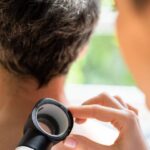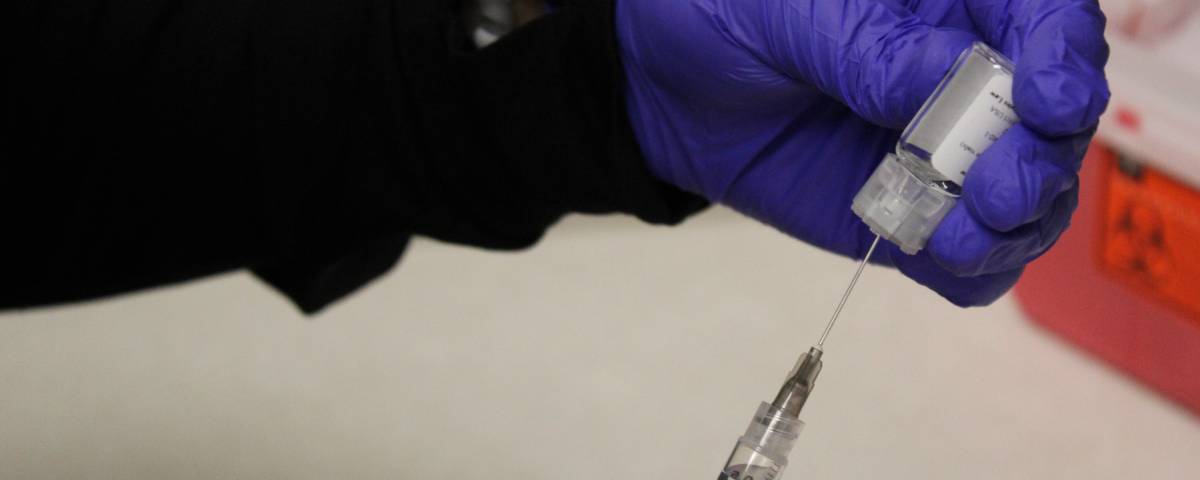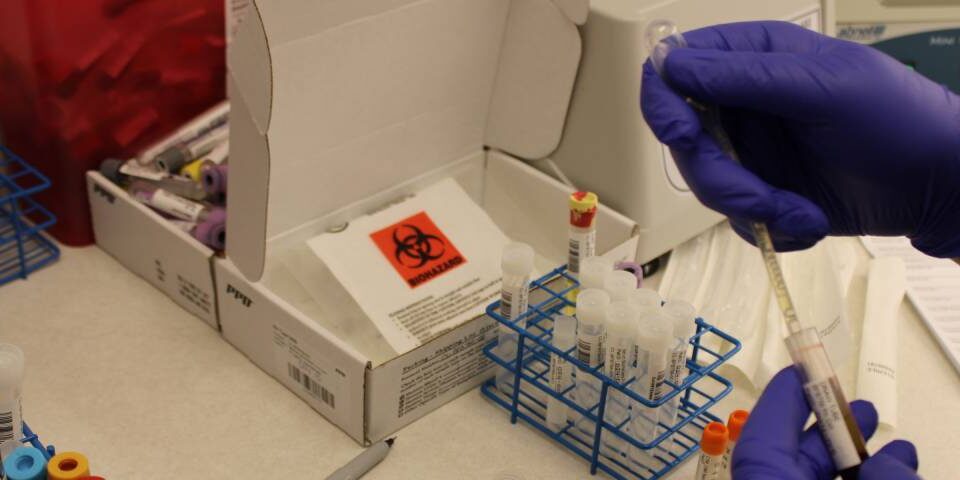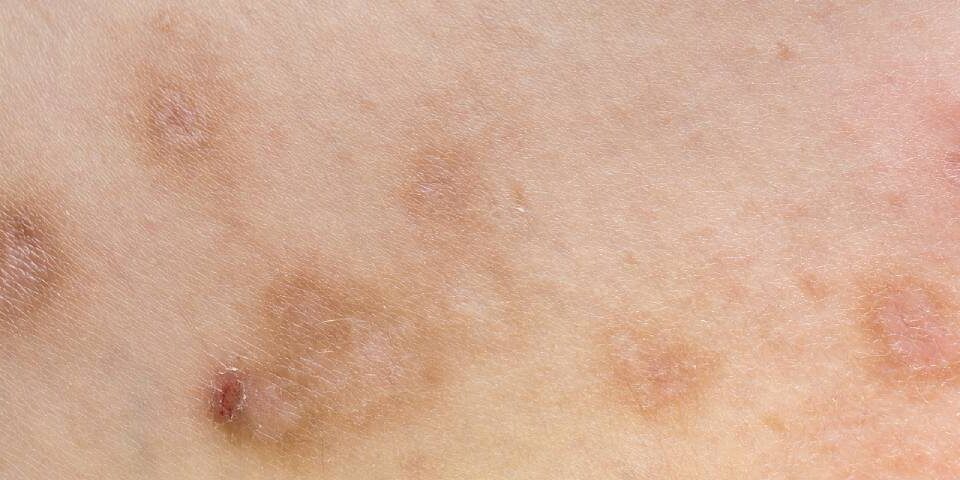
The Psychological Impact of Skin Conditions—and How Dermatology Clinical Trials Can Help
April 16, 2025
What to Expect When You Join a Clinical Trial
June 12, 2025Honoring Clinical Trials Awareness Day | May 20th
It’s nearly the 11th annual Clinical Trials Awareness Day—a day you might never have heard about before, but that certainly impacts the lives of everyone who has ever been treated for any kind of health problem, skin conditions included. The actual history of clinical trials is much longer than that, of course. May 20 commemorates the day back in 1747 when British Royal Navy surgeon James Lind ran the first known clinical trial on sailors with scurvy. That clinical trial led to the exciting discovery that sufficient vitamin C intake through citrus fruits could prevent the disease. Today, at Apex Clinical Research Center, we strive to make lives better through dermatology clinical trials for skincare research.
Why Awareness Matters
Clinical Trials Awareness Day may seem like just another day, but it means a lot more than that. All the medical treatments that make lives better for people today came out of clinical trials. Dedicated scientists and courageous participants studied and tested drugs that were once new, cutting-edge treatments that seem common today. Unfortunately, there’s a lot of misinformation about clinical trials these days. Apex Clinical Research Center is committed to transparency, ethics, and patient empowerment. So, in honor of this May 20th celebration of clinical trials, we want to bust myths about what it means to participate in clinical trials.
Misconception #1: Clinical Trials Are Only for the Seriously Ill
While it is true that some clinical trials for serious diseases may include very ill patients, the majority of clinical trials involve otherwise healthy volunteers who want to see progress made on treatments for health conditions they’re frustrated with, including common, manageable skin conditions like acne, psoriasis, eczema, etc. In fact, the patient candidates for inclusion in dermatology research with Apex Clinical Research Center are typically healthy people. However, they struggle with skin conditions they want better treatments for, or conditions that have not responded well to currently available treatments.
Even then, inclusion in a clinical trial study is not automatic. Our dermatology research team will put out a call for volunteers, and interested patients can then contact the team and schedule an initial consultation to determine if they are a good candidate for the research study. Typical criteria to participate in clinical trials include:
- You have to be 18 or older.
- You need to have a diagnosis of the study condition. For instance, to participate in our eczema clinical trial, you will need to have been previously diagnosed with eczema by your healthcare provider.
- Your full medical history (other conditions or medications you may be taking could disqualify you from testing the study drug)
- The severity of your condition
- How your condition responded to currently available treatments
- How available you are to come in for regular checkups, which can be as frequent as once a week over the course of the study—some studies can go for a year or more from start to finish.
Myth-Busted
Dermatology clinical trials usually include healthy volunteers with manageable skin conditions (like acne, psoriasis, or eczema), not just life-threatening diseases. These skincare research trials aim to improve daily comfort, reduce flare-ups, and offer new options for people who’ve tried everything else.
Did You Know?
Many dermatology clinical trials study prevention and new treatments for common skin conditions. We are currently running trials for manageable, but stress-inducing skin conditions, including Atopic Dermatitis (eczema), Plaque Psoriasis, and Chronic Urticaria.
Misconception #2: You’ll Be Treated Like a Test Subject
Whether they found us by searching “clinical trials near me” or were referred to us by another healthcare provider, our clinical trial participants are often pleasantly shocked at how deeply cared for they feel when working with us on skincare research trials. All clinical trials must follow strict ethical and clinical guidelines, and participant safety is the top priority. Every trial we run—whether for alopecia areata or pyoderma gangrenosum—follows strict protocols approved by an Institutional Review Board (IRB).
Also, participating patients are never given any treatment without full, informed consent. If an individual decides to participate in clinical trials, they are monitored very closely through regular check-ins. These regular appointments ensure high-quality care and attention for the patient. We monitor closely how they respond to treatment and stop treatment if there are ever any safety concerns.
Myth-Busted
Dermatology clinical trials follow strict ethical guidelines, and participant safety is a top priority.
Misconception #3: You Won’t Get Quality Medical Care
Just the opposite is true, in fact. If you participate in clinical trials, your care team will check in with you personally and regularly. Frequent (often weekly) check-ins and often complementary dermatological evaluations are part of the mix. You’ll have some of the best minds in dermatology guiding your care through innovative treatments. Their top priority is finding a way to make you more comfortable by finding treatments that will finally bring you the relief you’ve long hoped for. Apex Clinical Research Center’s dermatology research participants receive:
- Access to new, cutting-edge treatments not available elsewhere
- Board-certified dermatologists and trained research professionals monitoring your care to keep you safe and comfortable
- Trials for conditions like hidradenitis suppurativa and Gorlin syndrome include frequent skin evaluations, lab work, and follow-ups by experienced dermatologists and clinical researchers
The care you receive is typically far more comprehensive and detailed than a typical office visit—and it’s provided at no cost to you.
Myth-Busted
Participants receive close monitoring, expert care, innovative treatments, frequent check-ins, and often complimentary dermatological evaluations.
Misconception #4: Clinical Trials Are a Last Resort
While it is true that some patients are frustrated by current treatments not working well enough, we work with many patients who are simply curious about alternatives and cutting-edge scientific research that could lead to better outcomes in the future. Many are simply looking for a new approach by searching for “clinical trials near me”—not because they’re all out of options.
Some examples of patients who participate in clinical trials with us include:
- Someone with alopecia areata who is curious about newer biologic medicines.
- A patient with plaque psoriasis who wants to avoid long-term steroid use and wants to help dermatology research find another option.
In fact, some skincare research clinical trials are discovering new, first-line treatments!
Myth-Busted
Clinical trials are for people at all stages of care.
Misconception #5: You’ll Lose Control Over Your Health Decisions
Patients who participate in clinical trials are always in control of their own decisions and care path. You have complete autonomy, and those who run the clinical trial must be transparent and communicate with you throughout the process. That starts from the initial stages of deciding whether you want to participate, through the introductory phases of testing, and every follow-up appointment thereafter. Participation is 100% voluntary, and you can leave a study at any time. The Apex Clinical Research Center team wants you to have control over your care, so we make sure you understand every step of the process and help you feel comfortable before making any decisions.
Myth-Busted
The patient is always in control. Participation is always voluntary, and you can withdraw at any time. You’re always in the driver’s seat.
Why Dermatology Clinical Trials Need More Voices
The fact is, dermatology clinical trials, and clinical trials generally, improve with a greater variety of patient participants. Skincare research needs participants and input from people of all skin types, ages, and backgrounds. Inclusion ensures that new treatments are safe and effective for everyone, and that’s a good thing.
At Apex Clinical Research Center, we encourage enrollment with a broad, diverse group of volunteers across all of our trials. This will take us to new, better treatments that bring hope to all people.
Clinical Trials Near Me: Get Involved, Stay Informed
In honor of Clinical Trials Awareness Day, we invite you to consider participating in a clinical trial. Not only can you find hope through intense care and advanced scientific skincare research, but you’ll be blazing a path forward that could help many other patients with similar skin conditions.
Apex Clinical Research Center is currently running several exciting dermatology research clinical trials. Contact us today with any questions you have, and join us in the quest for hope through scientific discovery today.





